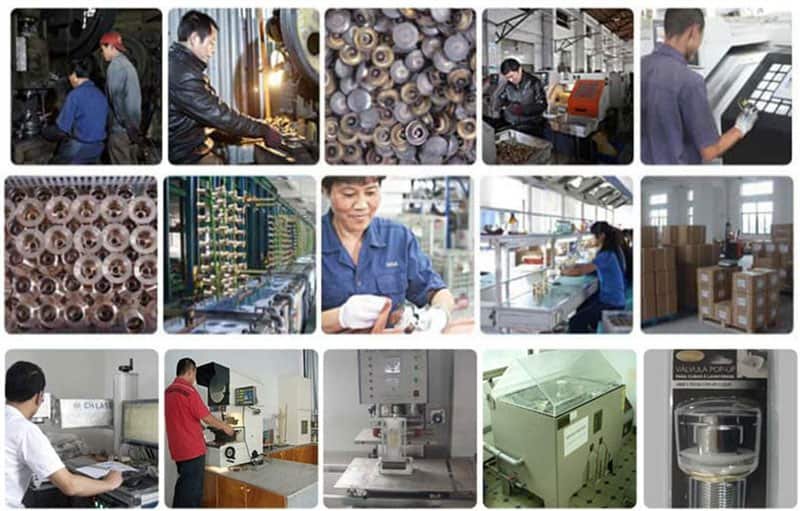Description
Sink S Trap for Bathroom Sink Kitchen Sewer Pipe Drain Tube Chrome
HF-0068
Size 200x560x30mm
Brass with Chrome plated finish
Dimensions LxWxH;7.87 x 22.05 x 1.18 inches
Connector Type Brass trap
Inlet and adapts to 1-1/4″ sink drains
A smooth interior won’t cause buildup or bad odors
Floor mounted installation type, with flange for connection to the floor in the house; and S trap design, not only space saving but also less cleanout and won’t clog
Brass and a polished chrome finished, rust-resistant and non-corrosive
Introduction: what is a sink trap, and why do you need one?
A sink trap is a U, J, or S-shaped pipe that connects the drain to the sewer line and prevents gases and odors from coming back into the house. It also catches debris that could clog the drain. Most traps have a clean-out plug that allows you to remove blockages without having to disassemble the trap. Installation how to install a sink trap
The Basics how-tos and guides: how to connect a sink drain to the waste pipe (trap)
Required Tools for this Project

What are the different types of sink traps?
There are four main types of sink traps: the P-trap, the S-trap, the I-trap, and the U-bend.
The P-trap is the most common trap and is typically used in kitchen sinks. It consists of a J-shaped pipe connecting to the drain and a water seal preventing sewer gases from entering the home.
The I-trap is less common than the other traps but can be used in both kitchen and bathroom sinks. Most traps are cast iron or plastic with a flange on the bottom that helps form a water seal. Traps have no moving parts, so they are generally easy to maintain. However, the trap can become clogged with mineral deposits over time if not cleaned out regularly.
How to install a sink trap
Most homes have a sink trap installed beneath the sink to prevent sewer gas from coming up through the drain. The sink trap is also where the P-trap assembly connects to the waste line. The P-trap comprises two curved pipes, one connected to the drain and the other to the wall or floor. A U-shaped section between these two pipes holds water, forming a seal that blocks sewer gases from passing through.
To install a new sink trap, start by removing the old one. Loosen the nuts that hold the P-trap in place and disconnect them from the drain and waste line. Next, clean out any debris from the area where the new trap will be installed. Install the new P-trap by connecting it to the drain and waste line, then tighten the nuts. There are several types of P-traps, each used for a different purpose or application.
The S-trap is a U-shaped pipe with an S-curve that creates a seal to prevent sewer gases from escaping.

What are the benefits of having a sink trap?
If you have a bathroom or kitchen sink draining slowly, it may be time to clean the S-trap. The S-trap is a U-shaped pipe under the sink that connects to the drain. Over time, this pipe can become clogged with hair, soap scum, and food particles. Cleaning out the S-trap is a simple process that anyone can do with a few household tools.
How to clean a sink trap
Assuming you are talking about a metal sink trap:
To clean a metal sink trap, remove the cap and clean out any accumulated debris. Next, unscrew the body of the trap and remove the stopper. Finally, rinse all components with warm water and reassemble the trap. You don’t need to replace the hardware. How to clean a sink trap – the easy way To clean a metal trap is first to remove the cap and clean out any accumulated debris. Next, unscrew the body of the trap and remove the stopper.
Conclusion: why sink traps are important
As water flows down your drain, it carries with it any debris that has gone down the sink. This debris can include everything from hair to food scraps. A sink trap is a U-shaped curve in your drainpipe that acts as a barrier, trapping this debris before it has a chance to clog up your sewer line.
Sink traps are important because they prevent clogs in your sewer line, which can be costly and time-consuming to fix. In addition, sink traps also keep nasty odors from seeping back up through your drains.
If you’re noticing that your drains are slowing down or backup, it’s probably time to clean out your sink trap. You can do this by unscrewing the trap and removing any accumulated debris. You should also clean out your sink trap when installing a new sink or faucet.
If the trap has been clogged with debris, remove the trap and clean it thoroughly with a wire brush.








